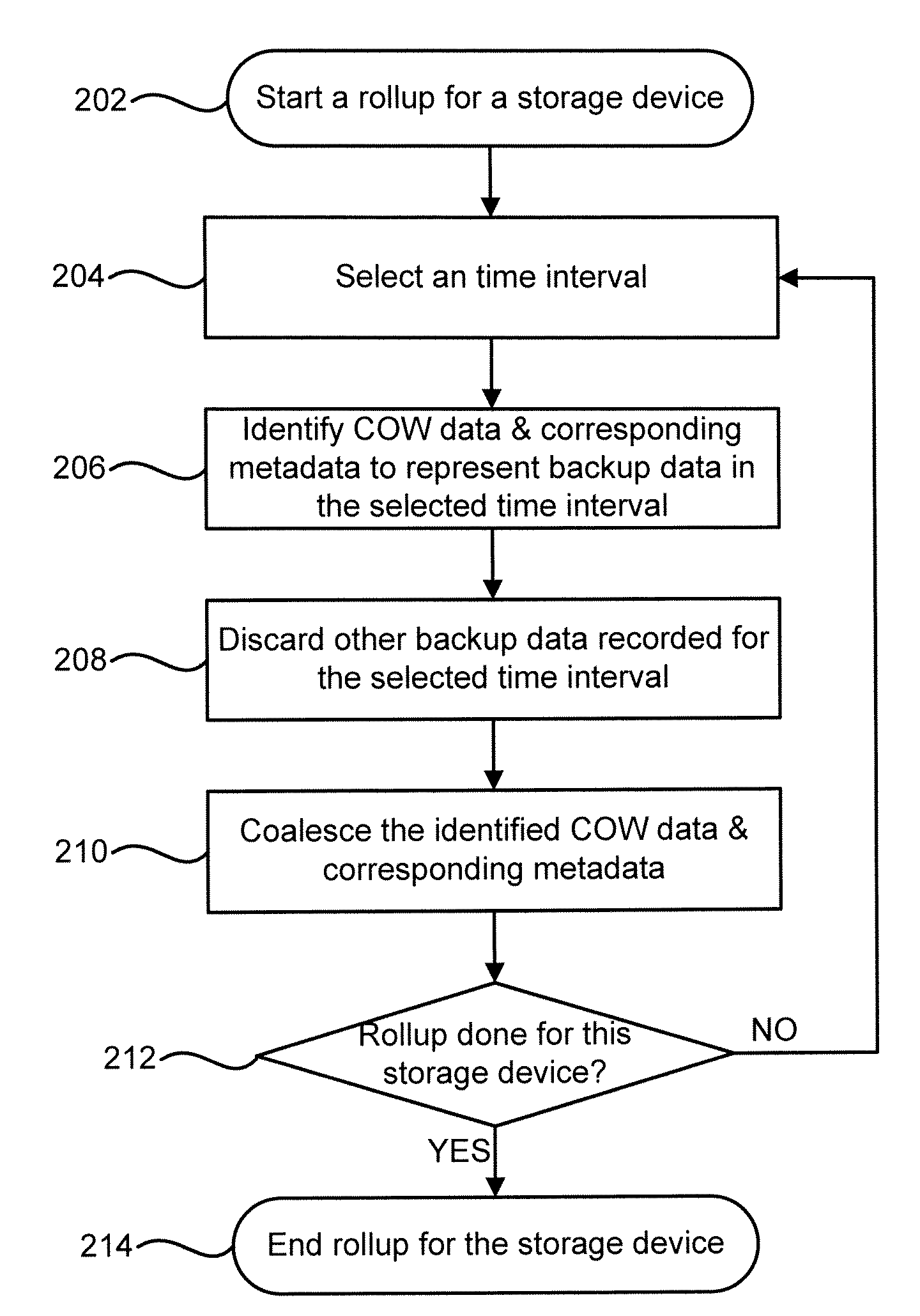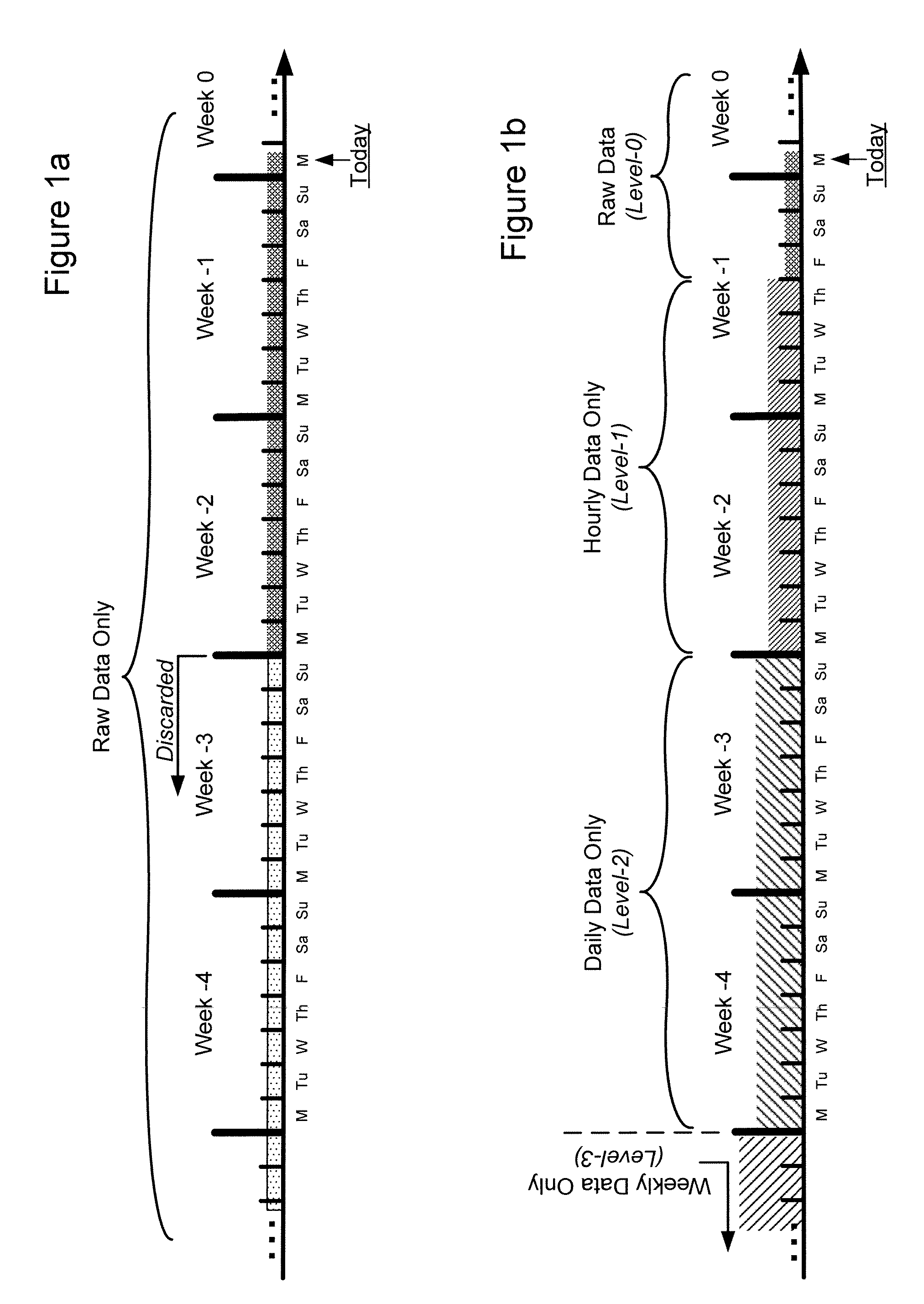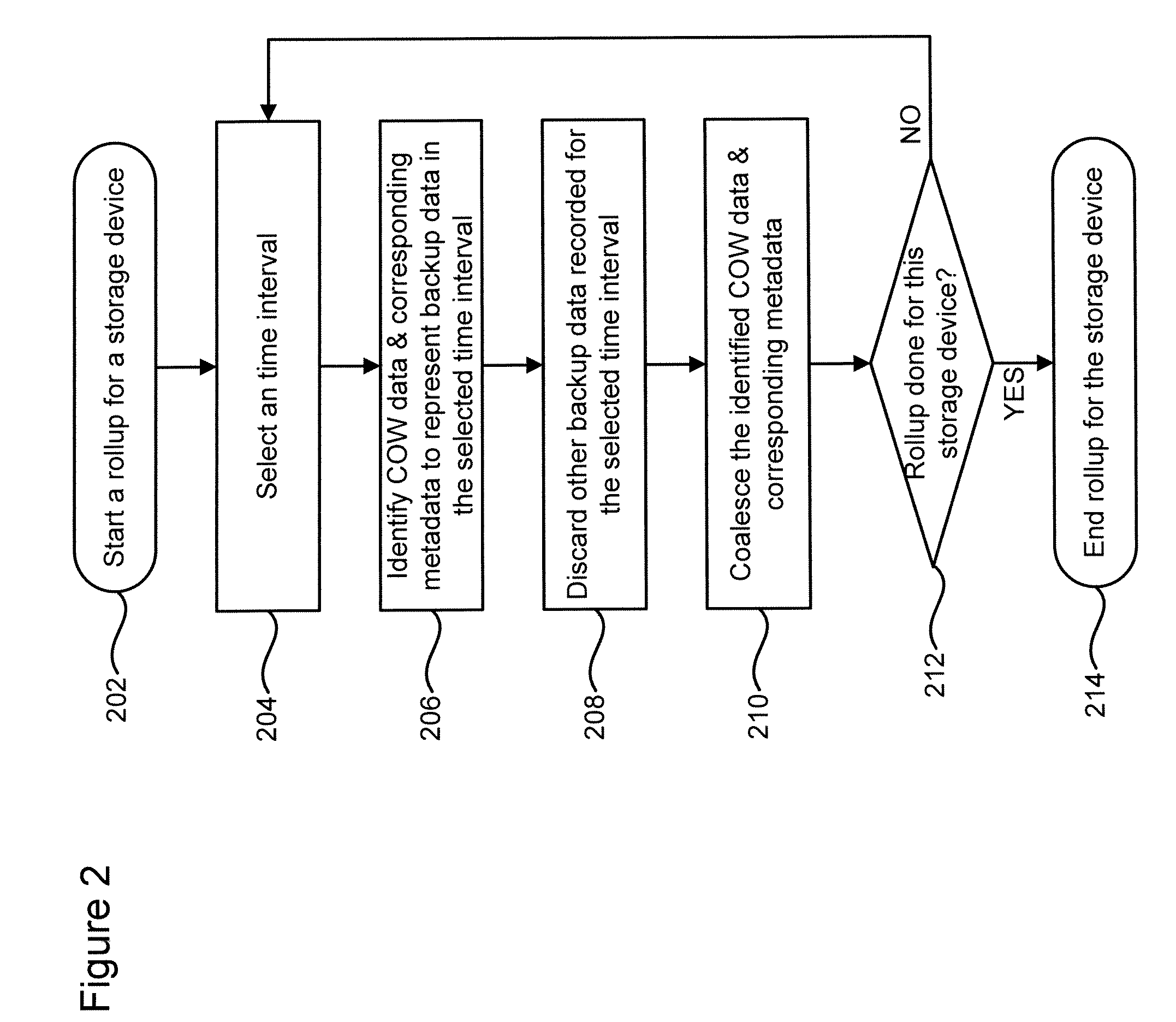Technique for timeline compression in a data store
a timeline and data storage technology, applied in the field of data storage, can solve the problems of limited data recovery capabilities, simple storage increase may not scale well, and significant amount of storage space is needed, and achieve the effect of reducing the granularity level of the timelin
- Summary
- Abstract
- Description
- Claims
- Application Information
AI Technical Summary
Benefits of technology
Problems solved by technology
Method used
Image
Examples
Embodiment Construction
[0032]As used herein, “backup data” refers generally to data that have been recorded and / or organized (or even re-organized) with a purpose of restoring or recovering digital content of a storage system.
[0033]“Copy-on-write data” (or “COW data”) refers to substantive data (e.g., new data to be written or old data to be overwritten in response to a write command) that have been recorded in a copy-on-write operation. New data to be written in response to a write command are sometimes referred to as “after image data” or “after image,” while old data to be overwritten in response to a write command are sometimes referred to as “before image data” or “before image.” The copy-on-write operation may be an actual operation performed in response to an actual write command. Or, the copy-on-write operation may be a virtual operation that includes the collective effect of multiple copy-on-write operations that occur during a selected time interval.
[0034]“Corresponding metadata” refers to infor...
PUM
 Login to View More
Login to View More Abstract
Description
Claims
Application Information
 Login to View More
Login to View More - R&D
- Intellectual Property
- Life Sciences
- Materials
- Tech Scout
- Unparalleled Data Quality
- Higher Quality Content
- 60% Fewer Hallucinations
Browse by: Latest US Patents, China's latest patents, Technical Efficacy Thesaurus, Application Domain, Technology Topic, Popular Technical Reports.
© 2025 PatSnap. All rights reserved.Legal|Privacy policy|Modern Slavery Act Transparency Statement|Sitemap|About US| Contact US: help@patsnap.com



